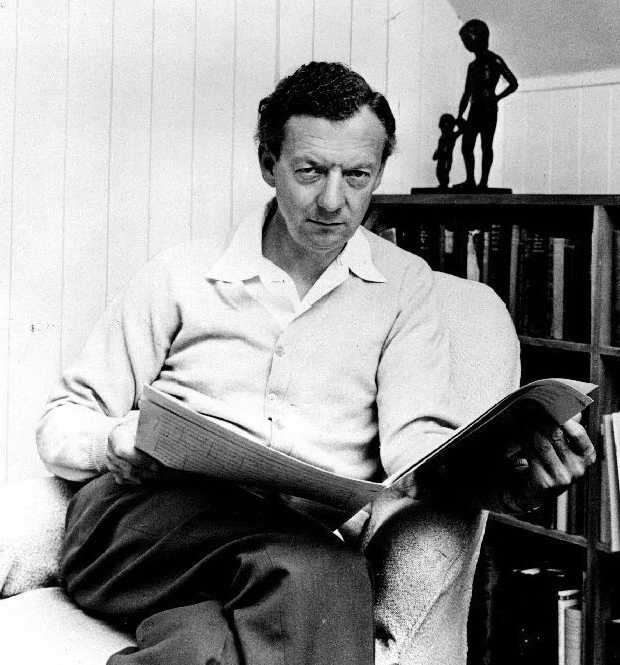by Julia Alsop
Friday 22nd November, 2013, marked the centenary of the birth of Edward Benjamin Britten, one of the best composers ever produced by Britain, writing touching and profound music, often making philosophical or political statements; thus, his incredible legacy must be honoured and upheld.
Baron Britten died of heart failure in 1976, insisting that he be buried, not in Westminster Abbey, as offered, but instead, in due course, next to Peter Pears.
 |
| Happy 100th birthday, Benjamin Britten. Photograph (and cake) by Julia Alsop |
Friday 22nd November, 2013, marked the centenary of the birth of Edward Benjamin Britten, one of the best composers ever produced by Britain, writing touching and profound music, often making philosophical or political statements; thus, his incredible legacy must be honoured and upheld.
He was born in a
small town called Lowestoft, by the North Sea coast. He had three siblings and
was very close to Edith, his mother, who helped to nurture her son’s musical
talent; as a music-lover herself, she fancied him to be the fourth “B” of great
composers, after Bach, Beethoven and Brahms. Britten was intelligent and gifted
in sports and mathematics at school, considered as being a “golden boy” by both
enemies and friends.
Britten was later a strong pacifist, and at school he had
already started to express distress at the use of corporal punishment and anger
at bullying by older boys of younger boys: ‘Atrocious bullying on all sides, vulgarity
and swearing… Boys, small and rather weak are turned into sour and bitter boys
and ruined for life.’ These
comments are not dissimilar to what he later said about war. Benjamin Britten
attended Gresham’s School where, in the sick bay at the age of 15, he famously
wrote his Hymn to the Virgin. He began to be mentored by the composer Frank
Bridge who was very impressed by the young composer’s skill. Britten went on to
study at the Royal College of Music, where he was successful, winning a number
of prestigious composition prizes in his years there.
 |
| Benjamin Britten |
After finishing at
the Royal College of Music, Britten wrote the score for a documentary film and
there met W. H Auden, a poet with whom he worked with for much of his life.
Britten’s mother
died in 1937, which he found deeply upsetting. In the same year, he also
became acquainted with Peter Pears, a great tenor, and later Britten’s partner,
for whom he wrote much music. The couple moved to USA in 1939 at the beginning
of World War II, with Europe not being the easiest place for pacifists to
reside, and his music not being received so well in the UK. However, his music
was not widely accepted by the audiences of New York either and the pair returned to
the UK in 1942, joining the Peace Pledge Union, and being granted exemption
from military service after applying as conscientious objectors.
In 1948 he
founded the Aldeburgh Festival, creating his own orchestra there and premiering
numerous works of his own. In 1957, Britten and Pears visited Europe and the Far
East where Britten was exposed to Balinese gamelan music, inspiring further compositions.
In recognition of his lifetime of achievement as a composer and of the success of the Aldeburgh Festival, he was awarded a life peerage.
Baron Britten died of heart failure in 1976, insisting that he be buried, not in Westminster Abbey, as offered, but instead, in due course, next to Peter Pears.
Great music of
his include famous works such as A Young
Person’s Guide to the Orchestra, religious works including A Hymn to St Cecilia and A Ceremony of Carols, and a wealth of
opera including Peter Grimes, A Turn of
the Screw, and my personal favourite, inspired by Herman Melville’s novella
of the same name, Billy Budd. The
Portsmouth Grammar School Chamber Choir recently performed his War Requiem alongside the Portsmouth
Choral Union, the trebles from Portsmouth Cathedral Choir and St John’s College
at Portsmouth Guildhall, a profound piece entwined with the poetry of Wilfred
Owen, conveying his strong anti-war beliefs.
Go give some Britten a listen: enjoy his legacy and be inspired by the statement made by his music.
Go give some Britten a listen: enjoy his legacy and be inspired by the statement made by his music.
Comments
Post a Comment
Comments with names are more likely to be published.